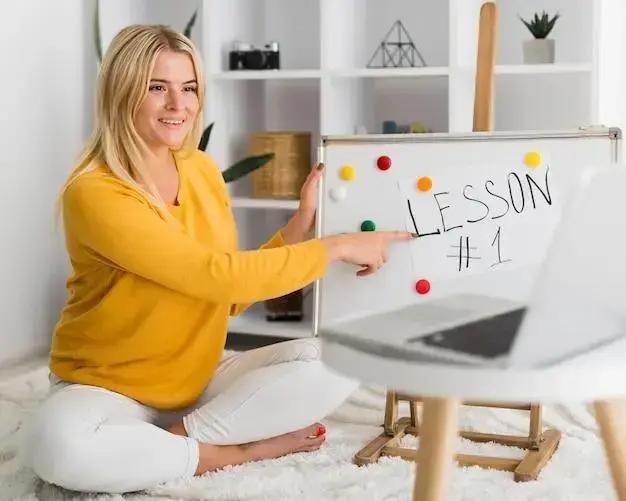Making healthy lifestyle changes can feel overwhelming, but it doesn’t have to be! Whether you’re looking to eat better, get more active, or improve your mental well-being, small adjustments can lead to big results. In this post, we’ll explore five simple steps that can help you on your journey to a healthier life. So, let’s dive in and discover how easy it can be to start living your best life!
1. Understanding the Importance of a Healthy Lifestyle
Embracing a healthy lifestyle is more than just a trend; it’s a vital choice for your overall well-being. When you think about it, our bodies are like cars. They need the right fuel, regular maintenance, and care to run smoothly. If you neglect them, well, you might end up with a breakdown!
First off, a healthy lifestyle can boost your energy levels. Imagine waking up each day feeling refreshed and ready to tackle whatever comes your way. Eating nutritious foods and staying active can make that a reality. Plus, it helps keep your weight in check, reducing the risk of chronic diseases like diabetes and heart issues.
But it’s not just about the physical benefits. A healthy lifestyle also plays a huge role in mental health. Regular exercise releases endorphins, those feel-good hormones that can lift your mood and reduce stress. It’s like a natural high that can help you face daily challenges with a smile.
Furthermore, adopting healthy habits can improve your sleep quality. When you eat well and stay active, your body knows how to rest better. And let’s be honest, who doesn’t love a good night’s sleep?
Why a Healthy Lifestyle Matters
In a nutshell, understanding the importance of a healthy lifestyle is about recognizing how interconnected our physical and mental health truly are. By making small changes today, you’re investing in a happier, healthier tomorrow. So, let’s take this journey together and unlock the benefits of a healthier lifestyle!
2. Nutrition: Eating Right for a Healthier You
When it comes to nutrition, think of it as the foundation of a healthy lifestyle. Just like a house needs a solid base, your body needs the right nutrients to function at its best. So, what does eating right really mean? Let’s break it down!
First off, focus on whole foods. These are foods that are as close to their natural state as possible. Think fruits, vegetables, whole grains, lean proteins, and healthy fats. Instead of reaching for processed snacks, try munching on some fresh fruit or a handful of nuts. Your body will thank you!
Fueling Your Body with the Right Foods
Next, let’s talk about balance. It’s important to include a variety of food groups in your meals. Aim for a colorful plate—this not only makes your meal more appealing but also ensures you’re getting a range of vitamins and minerals. Remember, the more colors, the better!
Portion control is another key player in nutrition. It’s easy to overeat, especially with all those tempting treats around. Try using smaller plates or bowls to help manage your portions. And don’t forget to listen to your body! Eat when you’re hungry and stop when you’re satisfied.
Hydration is often overlooked, but it’s super important. Drinking enough water can boost your energy, improve your mood, and even help with digestion. Aim for at least eight glasses a day, and if you’re active, you might need even more!
Lastly, don’t be too hard on yourself. It’s okay to indulge every now and then. The key is moderation. Enjoy that slice of cake or your favorite pizza, but balance it out with healthier choices throughout the week.
In summary, eating right for a healthier you is all about making mindful choices. By incorporating whole foods, balancing your meals, controlling portions, staying hydrated, and allowing yourself the occasional treat, you’re setting yourself up for success on your health journey!
3. Exercise: Finding Activities You Enjoy
Make Movement Fun!
Let’s face it—exercise can sometimes feel like a chore. But what if I told you it doesn’t have to be? The key to sticking with a fitness routine is finding activities that you genuinely enjoy. When you love what you’re doing, it won’t feel like work at all!
First, think about what you loved doing as a kid. Did you enjoy riding your bike, dancing, or playing tag with friends? Those activities can still bring joy to your adult life! Consider hopping on a bike for a leisurely ride around the park or joining a dance class to get your groove on.
Another great way to find enjoyable exercise is to try out different classes or groups.
Many gyms and community centers offer free trial classes. From yoga to kickboxing, there’s something for everyone. Who knows? You might discover a hidden passion for Zumba or martial arts!
Don’t forget about the great outdoors! Hiking, walking, or even gardening can be fantastic ways to get your body moving while soaking up some fresh air. Nature has a way of lifting our spirits, and being outside can make exercise feel less like a task and more like an adventure.
And let’s not overlook the power of socializing! Exercising with friends or family can make it so much more enjoyable. Whether it’s a weekend hike, a group run, or a friendly game of basketball, having a buddy can keep you motivated and make the experience a blast.
Lastly, remember that movement doesn’t have to be intense to be effective. Even light activities like stretching or leisurely walking can have significant health benefits. The goal is to get moving in a way that feels good for you.
In a nutshell, finding activities you enjoy is essential for making exercise a regular part of your life. So, get out there, explore new options, and most importantly, have fun while you’re at it!
4. Mental Health: The Role of Mindfulness and Stress Management
When we talk about a healthy lifestyle, mental health is just as important as physical health. After all, you can’t pour from an empty cup! One of the best ways to nurture your mental well-being is through mindfulness and effective stress management.
So, what exactly is mindfulness? It’s all about being present in the moment and fully engaging with your thoughts and feelings without judgment. You can practice mindfulness through meditation, deep breathing exercises, or even just by taking a few moments to appreciate your surroundings. For instance, next time you’re sipping your morning coffee, try to focus on the taste, the aroma, and how it makes you feel. It’s amazing how such simple moments can ground you!
Taking Care of Your Mind
Stress is a part of life, but how we manage it can make all the difference. One effective technique is to identify your stressors. What triggers your stress? Once you know, you can work on strategies to tackle those challenges. Whether it’s setting boundaries at work or finding time for self-care, taking proactive steps can help you feel more in control.
Physical activity also plays a crucial role in managing stress. Remember how we talked about finding exercises you enjoy? Well, those activities can be a fantastic outlet for stress relief. Whether it’s a brisk walk, a dance session, or a yoga class, moving your body can help release tension and boost your mood.
Another great tool for mental health is journaling. Writing down your thoughts and feelings can provide clarity and help you process emotions. It’s like having a conversation with yourself! Plus, it can be incredibly therapeutic to reflect on your day and celebrate your wins, no matter how small.
Lastly, don’t hesitate to reach out for support. Talking to friends, family, or a mental health professional can provide valuable insights and encouragement. Remember, you’re not alone in this journey!
In summary, prioritizing mental health through mindfulness and stress management is essential for a balanced lifestyle. By being present, managing stressors, engaging in physical activity, journaling, and seeking support, you’re taking significant steps toward a healthier mind and a happier life!
5. Building Sustainable Habits for Long-Term Success
Building Sustainable Habits for Long-Term Success
Creating Lasting Change
When it comes to a healthy lifestyle, the key to success lies in building sustainable habits. It’s not just about making changes for a few weeks or months; it’s about creating a lifestyle that you can maintain for the long haul. So, how do you do that? Let’s explore some effective strategies!
First off, start small. Trying to overhaul your entire life overnight can be overwhelming and lead to burnout. Instead, focus on one or two changes at a time. For example, if you want to eat healthier, you might start by adding an extra serving of vegetables to your meals each day. Once that becomes a habit, you can introduce another change.
Consistency is crucial. Habits take time to form, so be patient with yourself. It’s often said that it takes about 21 days to build a new habit, but it can vary from person to person. Keep showing up for yourself, even on days when motivation is low. Remember, progress is progress, no matter how small!
Another effective strategy is to track your progress. Whether it’s through a journal, an app, or a simple checklist, keeping tabs on your achievements can boost your motivation. Celebrate those small wins! Did you stick to your workout routine for a week? Treat yourself to something nice (not food-related) as a reward!
Accountability can also play a big role in building sustainable habits. Share your goals with friends or family, or even join a support group. Having someone to cheer you on can make a world of difference. Plus, it’s harder to skip a workout when you know someone is counting on you!
Lastly, be flexible and adaptable. Life can throw curveballs, and it’s important to adjust your habits as needed. If you miss a workout or indulge in a treat, don’t beat yourself up. Just get back on track and keep moving forward. Remember, it’s about progress, not perfection!
In conclusion, building sustainable habits for long-term success is all about starting small, being consistent, tracking your progress, finding accountability, and staying adaptable. By incorporating these strategies into your life, you’re setting yourself up for a healthier, happier future!
As we wrap up our exploration of healthy lifestyle changes, it’s clear that the journey to better health is a personal and ongoing process. By understanding the importance of a healthy lifestyle, focusing on nutrition, finding enjoyable exercise, prioritizing mental health, and building sustainable habits, you’re equipping yourself with the tools for long-term success.
Remember, it’s not about perfection; it’s about progress. Every small step you take adds up to significant changes over time. So, be kind to yourself, celebrate your victories, and don’t hesitate to seek support when needed. Your path to a healthier, happier life is uniquely yours, and every effort counts!
Embracing Your Healthy Lifestyle Journey
Now, go ahead and take that first step. Whether it’s trying a new recipe, going for a walk, or practicing mindfulness, you have the power to create a vibrant and fulfilling life. Here’s to your health and happiness!
Frequently Asked Questions about Healthy Lifestyle Changes
What are some simple healthy lifestyle changes I can start with?
Start with small changes like drinking more water, adding fruits and vegetables to your meals, and incorporating short walks into your day.
How can I make exercise more enjoyable?
Find activities you love, such as dancing, biking, or joining a group class. Exercising with friends can also make it more fun!
What role does nutrition play in a healthy lifestyle?
Nutrition is crucial as it fuels your body. Focus on whole foods, balance your meals, and practice portion control for better health.
How can I manage stress effectively?
Practice mindfulness through meditation or deep breathing, engage in physical activity, and consider journaling to process your thoughts.
What are sustainable habits, and why are they important?
Sustainable habits are changes you can maintain long-term. They are important because they help you achieve lasting health benefits without feeling overwhelmed.
How do I stay motivated on my healthy lifestyle journey?
Track your progress, celebrate small wins, find an accountability partner, and be flexible with your goals to maintain motivation.





